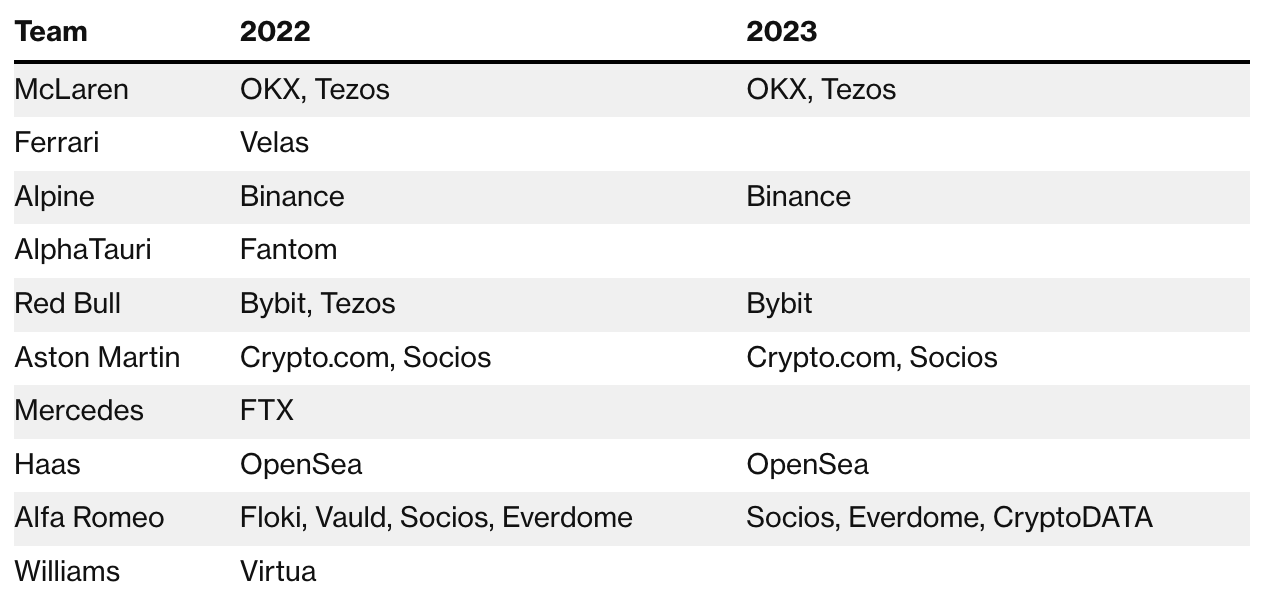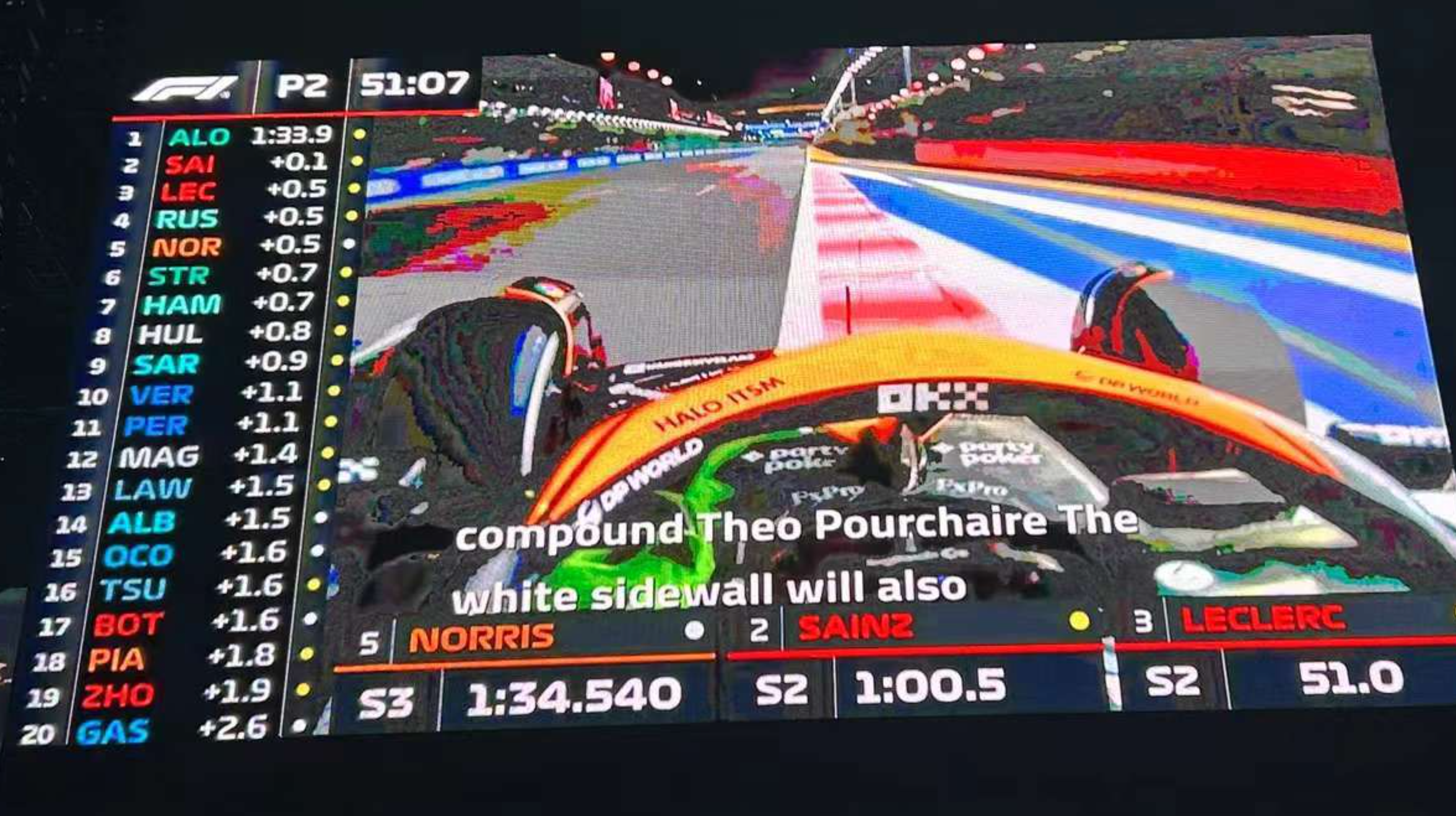F1 arrived as scheduled, with one-third reduction in sponsors. Who disappeared?
This week, perhaps the biggest event in the crypto world was the convening of TOKEN 2049. With the conclusion of Token 2049, Singapore immediately switched from the crypto capital to the city of Formula 1.
The timing of the two major events was seamless, and Singapore transitioned from the crypto moment to the F1 moment.
Just as the natives of the crypto world were finishing the industry summit and starting to enjoy the speed and excitement of F1, we made a slightly regrettable discovery - there were fewer teams with crypto elements.
During the previous bull market, in order to accelerate the mass adoption of crypto technology, almost all the crypto giants invested heavily in sports sponsorship.
Represented by FTX, these giants deeply involved themselves in various fields of the sports industry. The home court of the NBA's Miami Heat was even named the FTX Arena.
Compared to the peak of crypto sponsorship, this year's Singapore F1 race still had crypto elements. However, the crypto elements on the track were somewhat in decline, and it was difficult to see huge crypto logos on the field.

(Singapore Airlines, DHL, etc. are all traditional industry giants)
Although this site F1 lacks the naming of the encryption industry and the naming of the race track, the encryption industry is still an important team sponsor in the field of F1 sponsorship.
Unfortunately, due to market conditions, several encryption giants have long since withdrawn from team sponsorship. Odaily is on site at F1, counting the marketing changes of F1 teams.
In the F1 teams, various families had already been continuously dividing their forces by 2021. All 10 F1 teams once had encryption sponsors.
According to Bloomberg's data, F1 teams had a total of 16 encryption sponsors last year. This number has now dropped to 10.

Disappeared sponsors include: Velas, Fantom, Tezos, FTX, Floki, Vauld, Virtua. The newly joined brand is CryptoDATA.
From the perspective of the field, exchanges are the "big money" in the crypto world as always. Any sponsorship activity has exchanges as the biggest benefactor.
In 2022, four exchanges, OKX, Bybit, Binance, and Crypto.com, participated in F1 team sponsorships. And these sponsorship activities have continued into this year.

(A F 1 race car with an encrypted logo races through the streets of Singapore at night)
And the public chain is another major sponsor. Including Tezos, Velas, Fantom. Currently, only Tezos remains on the list of sponsors, as it has weathered the bear market of cryptocurrencies.
Interestingly, the list of sponsors even includes Floki, a meme coin. However, with the arrival of the bear market, this sponsor has disappeared from the list.
Impressively, the connection between the crypto world and the traditional world is becoming deeper. In order to gain a strong flow of traffic and enough exposure in Web2, the cryptocurrency industry is attempting to become a top participant in any traditional race.
What limits the expansion of the crypto world in the sports field is not only the arrival of the bear market, but also the unpredictable regulatory environment.
In 2022, France implemented regulations on sponsorship activities for F 1 races. During the F 1 Monaco Grand Prix, French regulatory authorities forced many F 1 teams to remove or cover up their encrypted sponsor logos.
French regulators believe that cryptocurrency advertising is risky for investors, so during the race in France, the sponsorship fees of crypto giants went down the drain.
With the conclusion of TOKEN 2049, the F 1 Grand Prix has become the focus of Singapore. How much attention can Web3 and cryptographic technology garner from sports sponsorships that spare no expense?



